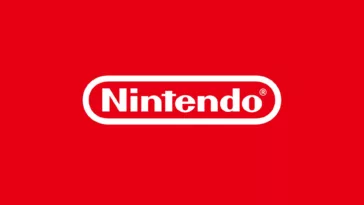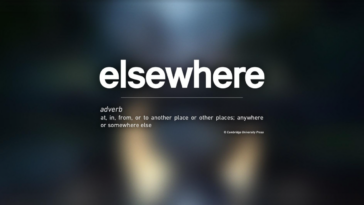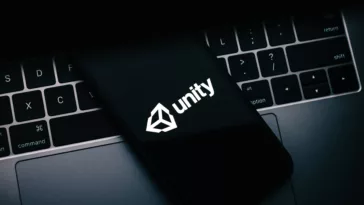The Game Developers Conference (GDC) has seen its fair share of announcements, but one that continues to spark debate is Irdeto's unveiling of TraceMark™ for Gaming. This watermarking solution is a significant addition to the Denuvo suite, already a name familiar with PC gamers due to its anti-tamper tech.
The Ever-Present Problem of Leaks
"TraceMark™ for Gaming uniquely addresses the challenge of content leakage, especially during the sensitive pre-release phase of game development," the press release notes. Leaks are a nightmare for developers and publishers alike. Buzz can be undercut, spoilers abound, and unfinished builds can lead to negative impressions. Just ask Rockstar about the massive GTA 6 leak.
TraceMark aims to be a deterrent. By embedding unique identifiers – both visible and invisible – into a game's files at various stages, any leaks can be traced back to their source with greater accuracy. This puts those responsible for pre-release leaks – whether playtesters, press, or insiders – on notice.
How Does Watermarking Fit Into the Picture?
Watermark technology isn't entirely new. Hollywood studios have been using it for years to protect screeners from unauthorized distribution. Similarly, sports leagues utilize it to embed invisible identifiers within broadcasts, allowing them to track down and take action against copyright infringement. Adapting this technology to the gaming industry makes perfect sense.
These invisible 'tags' are essentially digital signatures woven into the game's assets, like textures or code. The beauty of watermarking lies in its subtlety. Unlike intrusive DRM measures that can impact performance, watermarks work behind the scenes without affecting the gameplay experience for legitimate users. From the developer's perspective, however, they're a powerful tool. TraceMark allows them to pinpoint the exact source of a leak, be it a specific playtester or a reviewer's machine. This traceability discourages leaks in the first place, and empowers developers to take legal action if necessary.
Reception: Mixed Concerns
Denuvo's reputation precedes it. Many players associate its tech with performance issues, stemming from the early days of Denuvo's anti-tamper implementation. These concerns, while somewhat mitigated over time, linger in the minds of gamers. Additionally, some gamers have a philosophical objection to DRM in general, viewing it as an unnecessary restriction on ownership. They argue that anti-piracy measures often punish legitimate users with cumbersome activation processes or intrusive software checks.
On the other hand, developers counter that strong anti-piracy measures are necessary to protect their livelihoods. Game development is a financially risky endeavor, and studios rely on revenue from sales to justify future projects. Leaks that cut into those sales can have a devastating impact, especially for smaller studios.
Denuvo maintains that TraceMark won't cause headaches for legitimate users. The watermarking tech is designed to be lightweight and unobtrusive. However, the gaming community has learned to be skeptical of such assurances. Only time will tell if TraceMark lives up to its promise of robust protection without performance drawbacks.
There's also the 'arms race' aspect to consider. Leakers and pirates are resourceful groups, constantly innovating new methods to bypass copyright protection. While TraceMark may provide a solid deterrent now, it's unlikely to be a permanent solution. Denuvo will need to stay ahead of the curve and update its watermarking technology as new evasion techniques emerge.
The Rising Cost of Gaming: Driving Choices and Tempting Piracy
Beyond the technical battle against leaks, there's another challenge facing developers that TraceMark can't fully address: the skyrocketing cost of gaming. Modern AAA titles now routinely hit the $70 mark at launch, a hefty price tag for most players. Paired with the ever-increasing cost of high-end gaming hardware – both PCs and the latest consoles – the gaming hobby is becoming increasingly inaccessible.
This affordability crisis is having a profound impact on how gamers interact with the market. Faced with limited budgets, gamers have to be choosier about which games they add to their libraries. Subscription services like Xbox Game Pass or PlayStation Plus have grown in popularity, offering a broader range of titles for a more manageable monthly fee. But for those who prefer to own their games, the situation can be frustrating.
Unfortunately, the high cost of games also inadvertently fuels the very problem Denuvo and Irdeto are trying to combat: piracy. When faced with steep price tags, some players might turn to unauthorized distribution channels to get access to the games they crave. This isn't to condone piracy, but to acknowledge the reality of the situation. As the cost barrier rises, piracy, with its lack of restrictions and financial outlay, becomes more enticing for a portion of the gaming audience.
Does Denuvo's TraceMark Fit into the Bigger Picture?
While TraceMark™ is primarily focused on minimizing pre-release leaks, it indirectly touches upon a broader issue driving piracy. Game studios and publishers need to find a sustainable balance between protecting their intellectual property and respecting the financial constraints of their audience. There's an argument to be made that aggressive DRM solutions and ever-increasing prices ultimately work against their intended goal, driving a segment of potential customers away.
Finding solutions to make gaming more affordable, whether through alternative pricing structures, deeper discounts, or even exploring cloud-based streaming models, is vital for long-term success. Otherwise, even advanced anti-piracy tools may struggle to fully combat the problem if the underlying economic factors aren't addressed.
A Step Forward, But Not a Silver Bullet
"With the launch of TraceMark™ for Gaming, we are setting a new standard in anti-piracy for the gaming industry. This innovative solution not only marks a significant milestone for Irdeto but also represents a leap forward in protecting the creative and financial investments of game developers worldwide. At Irdeto, we understand the unique challenges faced by the gaming community, and TraceMark™ is our commitment to ensuring that these valuable assets are safeguarded throughout their lifecycle. We are excited to see the positive impact this will have on the industry,”
states Irdeto's Niels Haverkorn.
While that may be true, it's important to temper expectations. TraceMark isn't a magic bullet against piracy or leaks. It's one more tool in the arsenal.
Ultimately, the success of TraceMark hinges on whether it effectively balances strong protection with minimal impact on the end user. Denuvo and Irdeto have their work cut out for them in winning over the trust of the gaming community.
See it at GDC: If you're attending GDC, check out the Denuvo demos to see TraceMark firsthand and form your own opinion.
Source: Denuvo's press release




